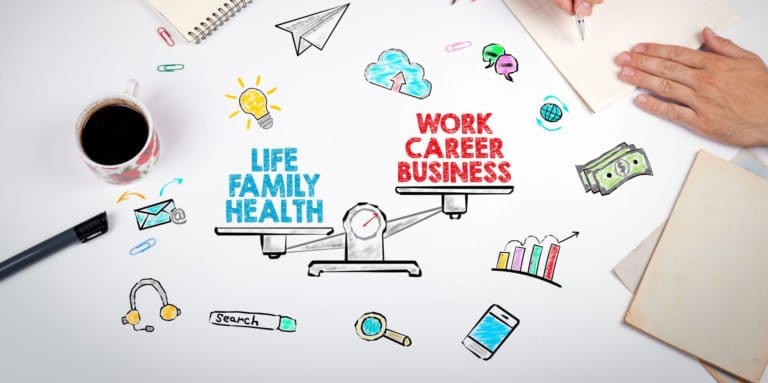The first counselling session is often a time of uncertainty.
One of the biggest reasons people hesitate to get therapy is that they are worried about the first session. And the initial awkwardness of what it might be like. This is very common, so we want to clear up some of this anxiety by being transparent about the first session. Here, we walk you through the first session and debunk some of the big fears people often raise.
First Counselling Session: the 3 scary questions
1. Do I really need to go back to the start? (talk about my childhood)
In the very first session, we ask you why you have come to counselling. This is to get a general understanding of the issues that are coming up, how you have tried handling them, as well as current coping strategies in place.
Like that old saying: ‘tip of the iceberg,’ there are usually a number of reasons why you have come. But also some underlying stressors weighing you down. Talking about these will help us understand. As Counsellors, we take this time to listen, hear you and your story.
It is kind of like we are parachuting from above, diving into what your life is like, getting a sky view, and then moving in to look more closely the more we work together. At this stage, we ask that if we get something wrong, tell us, as we want to make sure we are in your corner from the beginning.
Now we come to the first big scary question. The question ‘do I really need to go back to the start (talk about my childhood!)‘, at Safe Place Therapy we say ‘no’!
No, because we want to first understand your experience now, the intensity, your symptoms, and your current mental health now. Gone are the days of you laying on a couch and needing to divulge everything.
This would be scary for anyone. In the first session, the most important thing is creating a safe place and not asking those past questions based on very little information. You need to share what is comfortable for you and we are highly skilled counsellors so we ensure safety is part of everything that we do.
2. Do I need to share the stuff I haven’t told anyone?
Again the answer is no, especially not in the first session if you haven’t created the trust and rapport needed. Counselling takes time and we understand that you need to feel safe to ‘go there’.
The scary stuff might be, you have had an affair, you think you might be gay, you have an obsession with a specific behaviour, or that your mental health is really affecting your work. Whatever it is, this stuff can wait until you are ready.
Again safety first, you have hidden things to protect yourself. And as Counsellors, we need to respect this. The balance here is that movement and change happen when the therapeutic relationship grows stronger and you are able to share more.
Again this is the ‘iceberg’ stuff, the deeper we dive down into your thoughts, feelings and experience, the more support we can provide. What can be helpful initially, is to specify a ‘no go zone’ or a topic you don’t want to unpack just yet.
Yes, you can actually say in therapy that you don’t want to talk about certain things just yet. We are talking about the first session, here. So the biggest goal is safety, listening to you, and parachuting into what is currently going on.
3. Can I say ‘no’ in therapy? And what if I don’t like a certain approach the counsellor takes?
Yes, you can. We fundamentally believe that you are an expert in your own life, and you know what? You know yourself better than we do, especially in the first session. Rather than treating our connection as an expert and client, we want it to be an ‘expert with an expert’. This means you have every right to say no, you have every right to ask questions. And you can ask for a different way of doing things.
There are a number of reasons why people say no and it is totally OK. You might not be ready, you may have more questions. Or, for today, you might want to work on something else that is more pressing. We want you to explore these but we will respect your decision in therapy always.
Confidentiality.
There are three examples of when we need to break confidentiality.
The first is if we know you are planning to hurt yourself and you do not work with us to stay safe.
The second example is when you plan on hurting someone else.
We are very direct about this. In our work, we need to focus on the duty of care as we cannot risk your safety, or the safety of others, in any way.
Our highly trained Counsellors can specifically assess safety risk.
The last example is when we are court mandated to attend court. This example is rare but it can happen. We encourage you to ask any questions related to these examples.
Last bits and pieces.
The first counselling session is about you getting to know your counsellor and for them to get to know you. It’s a two-way street. In the first session, we want you to get one or two things out of it. For some, this might be some strategies to reduce your stress levels and feel more present. For others, it might be feeling a sense of someone understanding something and being your corner.
Getting something out of it is individual and so we do ask you what you would like from counselling. Our work with you is based on safety and respect and we hope this blog has helped shed some light on those big scary things stopping you from getting support.
Take a look at our information about mental health that we have prepared for you. If you have any further questions please contact us directly. We do want to hear from you.
Other information you may find useful.
All about our Telehealth / Online Counselling Service
Answers to Frequently Asked Questions – General
Answers to frequently asked questions about Family Therapy
What to expect in your first session of Relationship Counselling



